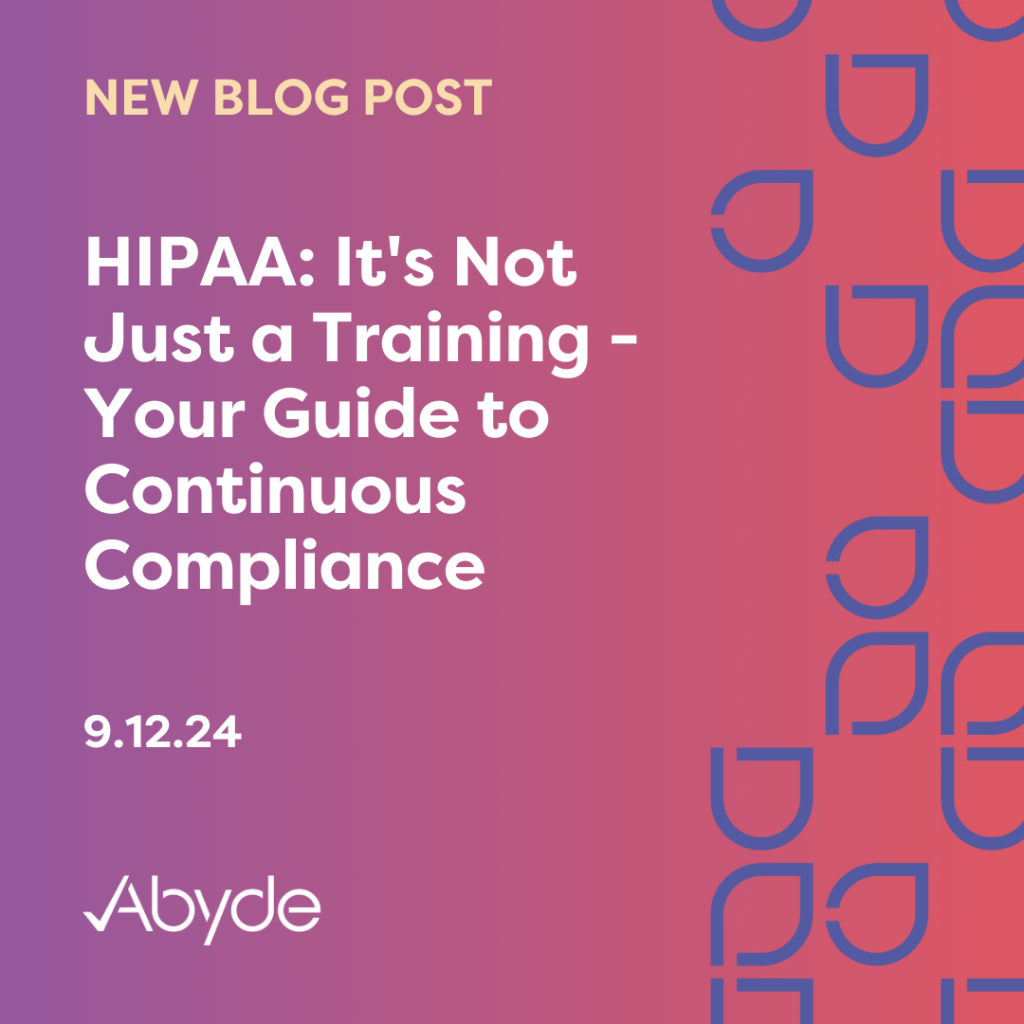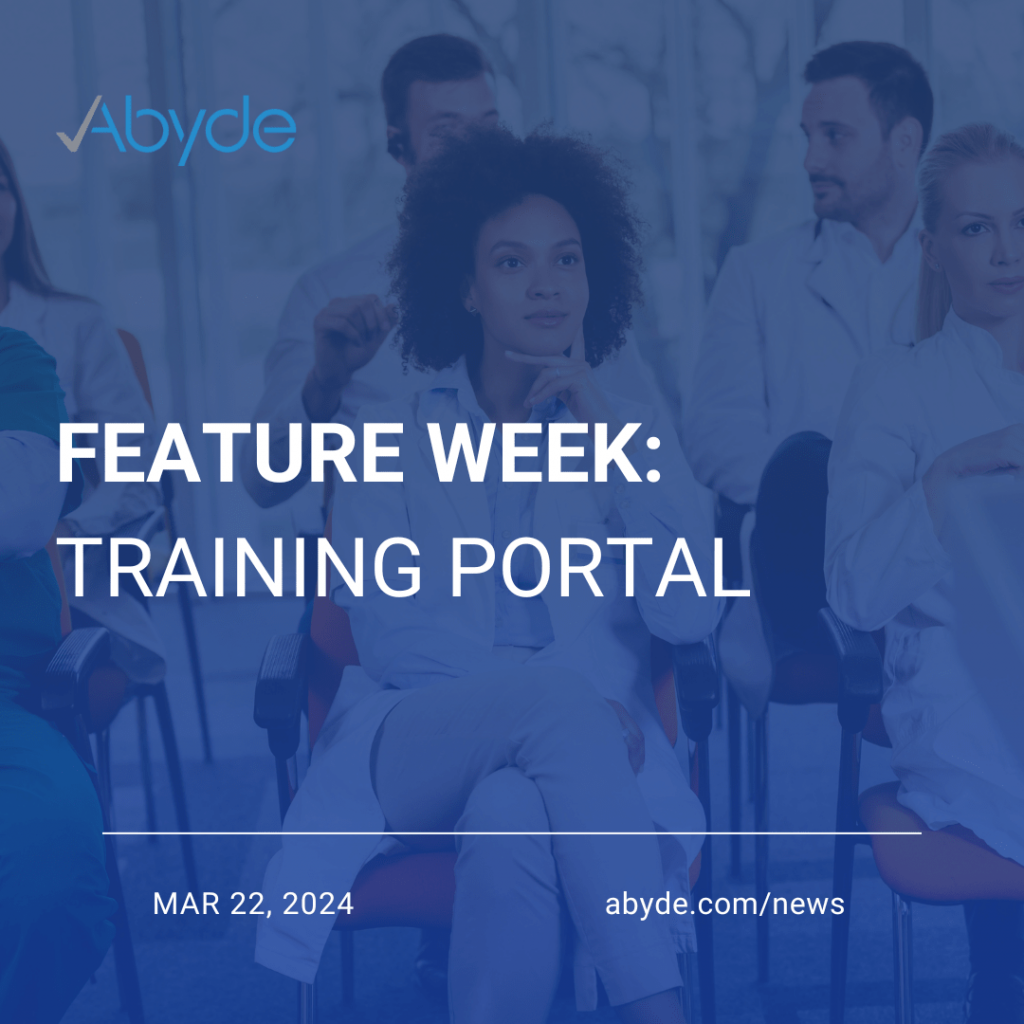June 12, 2025 While working in a dermatology office might have you focused on taking care of your patients’ skin, your health should be the first priority. It’s easy to incorrectly assume a dermatology office is a relatively “safe” healthcare environment. After all, we’re not typically dealing with the same acute emergencies as an ER. Dermatology presents many challenges when working with patients, such as lasers, sharp instruments, chemicals, potential exposure to bloodborne pathogens, and more. With these unique challenges, your practice must be aware of the safeguards the Occupational Safety and Health Administration (OSHA) requires. More than Skin Deep: Facility Risk Assessment An annual Facility Risk Assessment (FRA) is the foundation of your OSHA compliance program. The FRA is a thorough assessment of the healthcare hazards your practice might face. This assessment spans from your staff is trained, to unique equipment you might use, how situations are prevented, and even how management handles workplace safety. Since this is an annual requirement, this assessment must be kept current. If your practice introduces anything new that might heighten risk, this needs to be documented. For instance, if your practice begins offering laser treatments, this must be mentioned in the FRA and also staff must be trained on how to use it safely. By reviewing and addressing potential vulnerabilities in your practice, you can mitigate risks and ultimately keep patients safe. Personal Protective Equipment (PPE) in Dermatology: Your First Line of Defense While you advise patients on sun protection, remember that your staff’s skin needs protection, too. Always ensure that it remains covered with Personal Protective Equipment (PPE). PPE, like gloves and masks, are essential barriers that keep your team safe. Your practice must supply this PPE and provide comprehensive training on how to use it correctly. For instance, when a staff member is with a patient, a new set of gloves is always required. From putting them on to how they must be disposed of, these are all critical ways to keep staff members safe. Depending on the treatment, your staff may also need eye protection. As a result, it’s essential to review all available forms of PPE with staff before they start working with patients. Dermatology Laser Safety When it comes to lasers in your dermatology practice, preparation is paramount. It’s not enough to just have the equipment; you need to ensure every team member is properly trained and fully aware of the risks associated with these powerful devices. Once again, proper PPE is vital, such as eyewear and gloves. Additionally, the room where the laser is being used must adhere to safety guidelines, including not having any reflective surfaces for the laser to shine off. Your practice should designate a Laser Safety Officer to oversee and enforce compliance. This staff member is likely already your OSHA Safety Officer, or OSO. This Laser Safety Officer needs to ensure staff is routinely trained on lasers, especially if new equipment is being used. For staff safety, the laser device must be off when not in use. While laser treatments offer dermatologists innovative possibilities, proper staff training always remains crucial. Keeping Your Dermatology Practice Safe Ensuring the safety of your dermatology practice is not just about compliance; it’s about fostering a secure environment for both your dedicated staff and your valued patients. Your practice can proactively address potential hazards by diligently conducting annual facility risk assessments, consistently utilizing appropriate personal protective equipment, and prioritizing comprehensive training. With the right solution, your practice can streamline these requirements. Smart software can utilize the answers from your FRA and provide thorough policies and procedures and recommended training. A safe practice is a successful practice. To see how you can streamline compliance for your practice, schedule a meeting with a compliance expert today.
HIPAA: It’s Not Just a Training – Your Guide to Continuous Compliance
September 12, 2024 Picture this: it’s time for your annual HIPAA training. Once you complete all the staff training, you’ll be compliant for the year, right? You would actually be mistaken, but that’s okay. It’s a common misunderstanding of HIPAA and its requirements. HIPAA is comprehensive federal legislation that protects sensitive patient data. As a staff member of a Covered Entity or Business Associate, it is your responsibility to ensure the proper safeguarding of patient data, which requires much more than annual training. This article examines the requirements for HIPAA compliance and showcases how software solutions can more thoroughly and quickly ensure responsibilities are met compared to manual tracking. So, what’s required for HIPAA? HIPAA compliance requires a continuous documented program, not just annual training. When HIPAA is followed correctly, appointing a HIPAA Compliance Officer (HCO) is essential. This highlights the need for leadership and organization of all elements to ensure compliance. One of the most essential components of HIPAA is a Security Risk Analysis, or SRA. The SRA is a commonly missed requirement, with 86% of Covered Entities and BAs unable to present the documentation when randomly audited. The SRA is a detailed review of all the safeguards your practice has in place to protect patient data. This ranges from alarms on doors to procedures followed by your staff, and it is a thorough analysis of your practice’s precautions and vulnerabilities regarding HIPAA. Alongside a documented SRA, policies and procedures must be made available to all staff, empowering employees to quickly review the best course of action if an issue arises. Using templates you find online will not cut it if they are not personalized and unique for the location. Documentation is a significant component of HIPAA. Another required paperwork element of HIPAA is Business Associate Agreements with all third-party companies your practice or business works with that have access to PHI (Protected Health Information). When HIPAA breaches occur, they also have to be documented and reported. As you can see, HIPAA compliance is much more than just training. It’s a continuous program for a good reason: protecting patients’ sensitive health information. The Future of HIPAA Compliance HIPAA Compliance is a continuous process; one yearly training isn’t going to cut it. The requirements of HIPAA can be complex, but with intelligent software solutions, your organization can streamline compliance and mitigate risk. Utilizing comprehensive software solutions can help identify your vulnerabilities, save your practice significant time, and offer a clear understanding of what needs to be done to ensure compliance. Instead of relying on a cumbersome manual binder full of paperwork, innovative solutions can offer these advantages. To learn more about HIPAA compliance best practices, schedule an education consultation with one of our experts today.
Abyde Feature Week: Training Portal
March 22, 2024 Is it over already? But, we’ve been having so much! If you’re not aware, this past week, we’ve been going over all the amazing features the Abyde software has to offer, simplifying compliance for your business. Every second counts when it comes to running your business, and complex HIPAA regulations are the last thing you need to stress about. That’s where Abyde comes in. Over the past week, we’ve gone through a variety of our cutting-edge features. For example, the once daunting Security Risk Analysis (SRA)? Yeah, we turned it into a questionnaire that can be completed in minutes. We have a Scorecard that keeps track of your HIPAA triumphs and shortcomings, letting you know the best compliance practices. In the spirit of efficiency, we also dynamically generate your custom policies and procedures. Oh yeah, we also streamline Business Associate Agreements with our BA | CE Portal, making the only thing you have to do is digitally sign. Now, the last feature of this wonderful week will be our entertaining training. Yes, pick your jaw off the floor, Abyde actually makes HIPAA compliance training fun. Level Up! Routine training is required to keep you and your staff on point when it comes to compliance protocols. Compliance training might not be synonymous with fun to most, so that’s where Abyde once again has changed the compliance game. Gone are the days when you’d need to shut down your business, hire a third-party consultant, and spend the whole day talking about HIPAA. With Abyde, we create short, simple, and entertaining training, giving over everything you need to know to be compliant. We’re always getting better here at Abyde, and some of my favorite new trainings are interactive, making sure your staff is engaged and learning. Best part? This training can be completed at your own pace, so no need to shut down the business for the day! Need to follow up with employees who haven’t completed training? You can do that with a click of a button, reminding staff with a friendly email from us. In the words of the Staples button – That was easy! Feature Finale We had a fantastic week going through all the amazing features that make Abyde, well, Abyde! Now, let’s remember that continuous compliance lasts a lot longer than this week, and is a staple to the success of your business. Think about the countless hours you save with Abyde’s innovative solutions. Abyde can and will make compliance for your business simple and easy. It’s what we do best. We’re here to equip businesses with the tools they need to keep Protected Health Information (PHI) safe and secure. BAs are in a unique situation – running both a business and then being entrusted with the responsibility of protecting sensitive patient information. We’re here to make compliance easy so you can focus on running your business. To learn more about Abyde’s revolutionary software solution, email us at info@abyde.com and schedule a demo here to see it in action.
Requirements for HIPAA Training
July 22, 2020 You know the saying ‘teamwork makes the dream work’? The same goes for HIPAA compliance within your practice, too. The easiest way to make sure everyone is on the same page is to implement a comprehensive HIPAA compliance training program. HIPAA training is key to securing your patients’ information and instilling a culture of compliance within your organization. Compliance is a group effort, and ensuring that all workforce members have a full understanding of their HIPAA responsibilities will limit the accidental exposure of protected health information (PHI) and avoid potential high dollar settlements for the practice. 58% of healthcare breaches involve practice employees, and these breaches are largely a result of employees improperly disclosing patient information, the mishandling of medical records, losing devices containing electronic protected health information (ePHI), or a general lack of training. This makes education a key aspect in preventing improper access or misuse of PHI. Unfortunately, the Office for Civil Rights (OCR) doesn’t provide any lesson plans or online training classes – leaving the burden of providing proper education completely on your practice. Here are a few key points to keep in mind when it comes to the “who, what, when, and how” of employee training. Who needs to be trained? All workforce members, part-time, contract, or full-time, that come into contact with protected health information must be properly trained. This includes providers as well. HIPAA law states that training must be done “as necessary and appropriate for the members of the workforce to carry out their functions.” Some staff members, like your practice’s HIPAA Compliance Officer, should be trained more frequently than the rest of the staff and the material should be specific to their HCO duties. What needs to be included in the training? HIPAA doesn’t specify any particular topics that should be covered or what timeframe they should be addressed in, but training should be designed around what a staff member needs to know in order to perform their job function. That might include new employee training that covers the basics and additional training that dive more deeply into the nuances of how HIPAA impacts the staff’s daily job roles. Common HIPAA training topics include: When should employees be trained? While HIPAA does not technically specify the timeframe of ongoing training, most agree that annual training is the appropriate timeframe to keep HIPAA top of mind for staff. In addition, any new employees must complete initial training on HIPAA within a reasonable time after being hired – this is recommended within the first 90 days of employment. HIPAA training should be a key part of the employee onboarding process to ensure compliance. It will also set the standard that HIPAA compliance is important to your practice. How long must each training be? There’s no specified length of training regulated by HIPAA, but the length must be sufficient enough to cover all the necessary materials. The quality of the information being provided as well as the effectiveness of how it is taught is the most important aspect of proper training. This could mean a shorter but more engaging training, such as an animated video and interactive quiz. There’s also no specifics that identify if training must be completed individually or as a group. Utilizing training videos may help your practice avoid losing valuable patient time by letting staff complete training on their own time. What is required to document training? One of the most important aspects of completing HIPAA training is to document each staff member’s completion. When it comes to HIPAA, document, document and document some more. It is key to providing proof of compliance if ever audited or breached. For training, a certificate of completion showing who completed the training and when it was completed will show all needed information. Offering a modular-type training format, such as a quiz after training, is important for showing that employees retained the material. Unpacking HIPAA means peeling back a lot of layers, and ensuring that each employee is properly trained on HIPAA’s nuances to fully understand what’s needed to be compliant may seem daunting. A solution like Abyde makes HIPAA training as easy as a click of a button, sending animated training videos that keep HIPAA fun and engaging. No matter the training solution your practice chooses, make sure it meets all HIPAA requirements and most importantly delivers content in a way that will be retained and understood by your employees.



